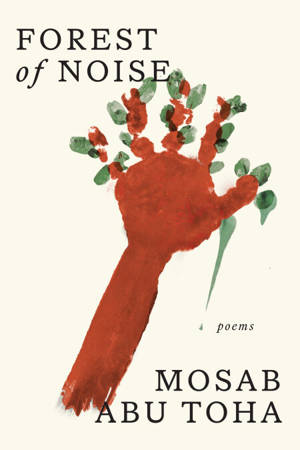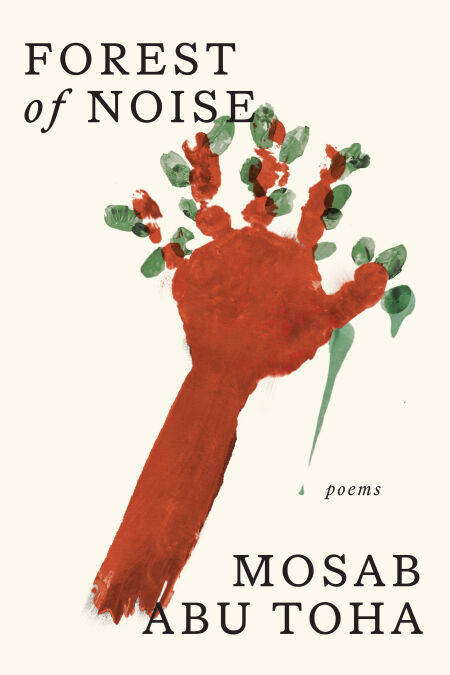
Je cadeautjes zeker op tijd in huis hebben voor de feestdagen? Kom langs in onze winkels en vind het perfecte geschenk!
- Afhalen na 1 uur in een winkel met voorraad
- Gratis thuislevering in België vanaf € 30
- Ruim aanbod met 7 miljoen producten
Je cadeautjes zeker op tijd in huis hebben voor de feestdagen? Kom langs in onze winkels en vind het perfecte geschenk!
- Afhalen na 1 uur in een winkel met voorraad
- Gratis thuislevering in België vanaf € 30
- Ruim aanbod met 7 miljoen producten
Zoeken
Omschrijving
A NEW YORK TIMES NOTABLE BOOK • "A powerful, capacious, and profound" (Ocean Vuong) new collection of poems about life in Gaza by an acclaimed Palestinian poet and Pulitzer Prize-winning writer
You are alive
for a moment
when living people
run after you.
Barely thirty years old, Mosab Abu Toha was already a well-known poet when the current siege of Gaza began. After the Israeli army bombed and destroyed his house, pulverizing a library he had painstakingly built for community use, he and his family fled for their safety. Not for the first time in their lives.
Somehow, amid the chaos, Abu Toha kept writing poems. These are those poems. Uncannily clear, direct, and beautifully tuned, they form one of the most astonishing works of art wrested from wartime. Here are directives for what to do in an air raid; here are lyrics about the poet’s wife, singing to his children to distract them. Huddled in the dark, Abu Toha remembers his grandfather’s oranges, his daughter’s joy in eating them.
Moving between glimpses of life in relative peacetime and absurdist poems about surviving in a barely livable occupation, Forest of Noise invites a wide audience into an experience that defies the imagination—even as it is watched live. Abu Toha's poems introduce readers to his extended family, some of them no longer with us. This is an urgent, extraordinary, and arrestingly whimsical book. Searing and beautiful, it brings us indelible art in a time of terrible suffering.
You are alive
for a moment
when living people
run after you.
Barely thirty years old, Mosab Abu Toha was already a well-known poet when the current siege of Gaza began. After the Israeli army bombed and destroyed his house, pulverizing a library he had painstakingly built for community use, he and his family fled for their safety. Not for the first time in their lives.
Somehow, amid the chaos, Abu Toha kept writing poems. These are those poems. Uncannily clear, direct, and beautifully tuned, they form one of the most astonishing works of art wrested from wartime. Here are directives for what to do in an air raid; here are lyrics about the poet’s wife, singing to his children to distract them. Huddled in the dark, Abu Toha remembers his grandfather’s oranges, his daughter’s joy in eating them.
Moving between glimpses of life in relative peacetime and absurdist poems about surviving in a barely livable occupation, Forest of Noise invites a wide audience into an experience that defies the imagination—even as it is watched live. Abu Toha's poems introduce readers to his extended family, some of them no longer with us. This is an urgent, extraordinary, and arrestingly whimsical book. Searing and beautiful, it brings us indelible art in a time of terrible suffering.
Specificaties
Betrokkenen
- Auteur(s):
- Uitgeverij:
Inhoud
- Aantal bladzijden:
- 96
- Taal:
- Engels
Eigenschappen
- Productcode (EAN):
- 9780593803981
- Verschijningsdatum:
- 14/10/2024
- Uitvoering:
- E-book
- Beveiligd met:
- Adobe DRM
- Formaat:
- ePub

Alleen bij Standaard Boekhandel
+ 15 punten op je klantenkaart van Standaard Boekhandel
Beoordelingen
We publiceren alleen reviews die voldoen aan de voorwaarden voor reviews. Bekijk onze voorwaarden voor reviews.









